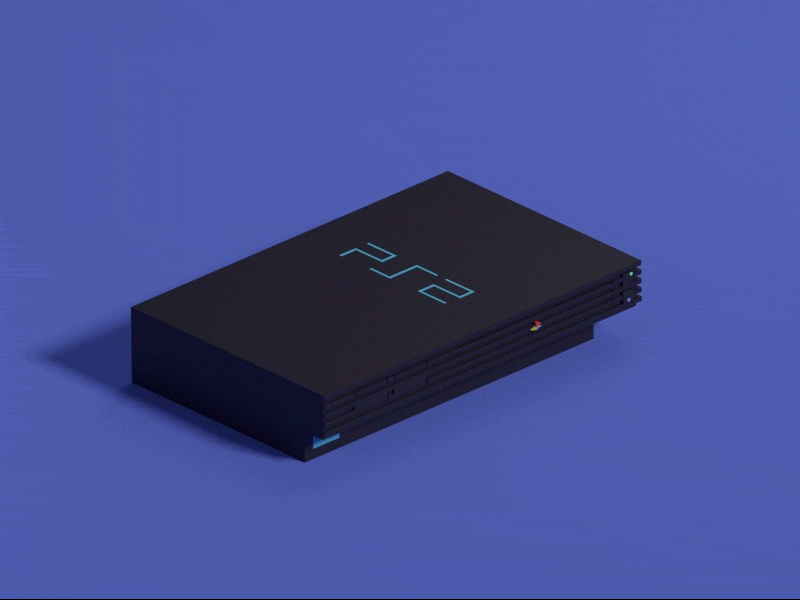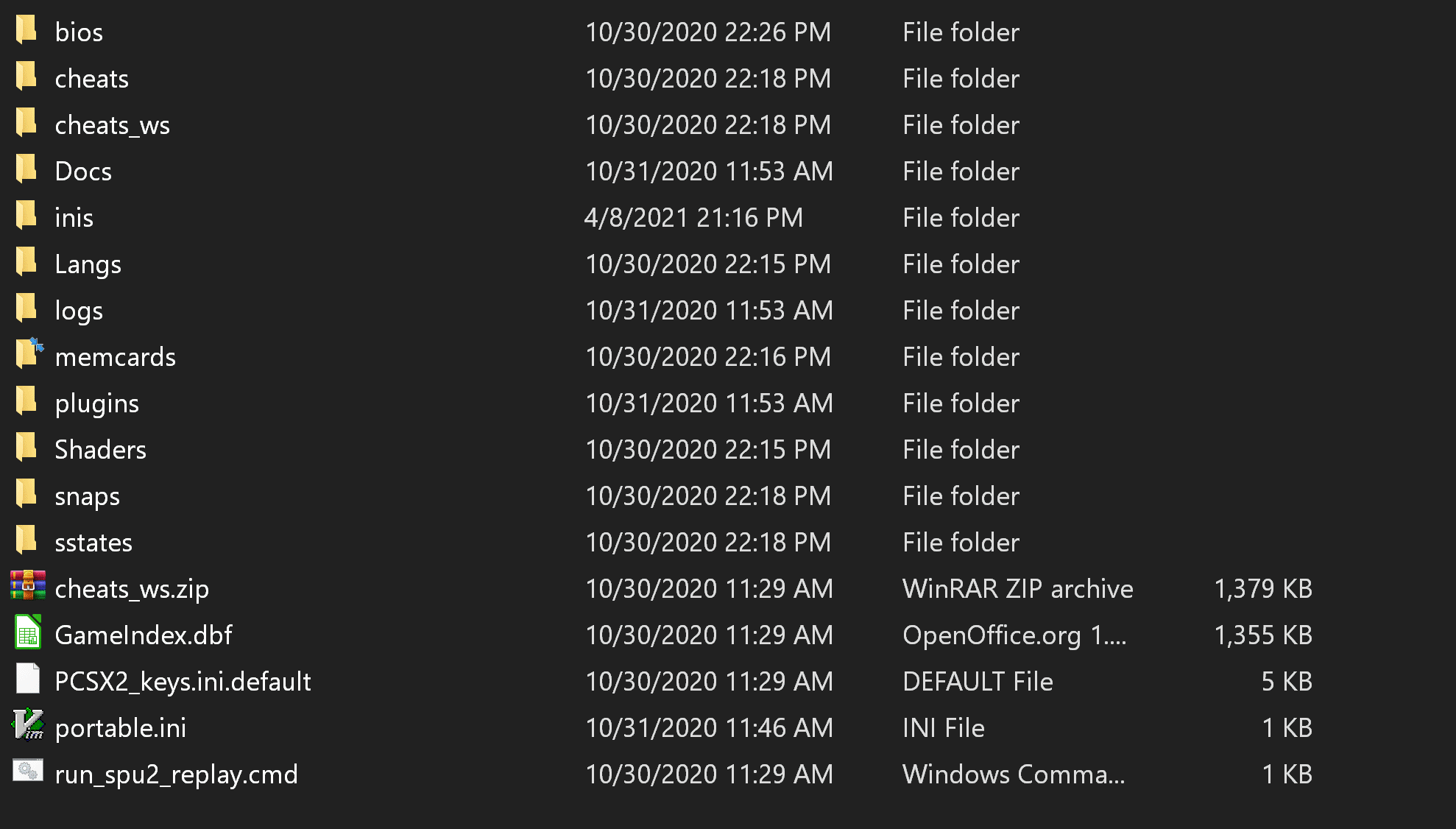PCSX2
* Added widescreen, speedhacks options and some userhacks, some code refactoring and cleanup
* Added core option to force widescreen
* Refactoring of core options based on libretro standard
Added option to set pcsx2 Accurancy/Speed presets
* Added bios list at runtime to libretro options
* Fixed speedhacks presets option
Added fallback to default safe preset if speedhack option is disabled
Code cleanup
* Added userhack options: Align Sprite and Merge Sprite
* Fixed a problem which prevented to select the correct HW renderer
Fixed null renderer problem that, if selected, freezed the frontend
* Fixed the rumble issue where it doesn’t stop when triggered
* Add CHD support
* Added option to disable gamepad rumble
* Added option to set rumble intensity
* Replace “Force Widescreen” option with “Aspect Ratio” option
* Add ‘Enable Widescreen Patches’ option
* Added option to set System Language per game
* Added support for scph39001 bios
* Added function for sending message notifications to frontend
* Added notification to frontent about widescreen patches found or not found for the loaded content
* Improved reliability of BIOS detection for language injection
* Added language support for all EU and NA BIOS
* Fixed a memory access violation during init
* CDVD: Adjust read speed depending on if in inner/outer edge. This fixes a number of CDVD timing issues, e.g. the missing sound in Klonoa 2.
* GameDB: Remove SkipmMPEG patch for Arctic Thunder. Removes a GameDB hack for Arctic Thunder as it’s no longer needed thanks to the above CDVD improvement.
* IPU: Return contents of the bottom of the FIFO in CMD except FDEC/VDEC. Fixes the FMVs in Shox.
Update policy for this core
This core is maintained by libretro.
SwanStation core
SwanStation is a PlayStation1 emulator core.
Some things that were added recently to this include software rendering upscaling support.
FCEUmm
FCEUmm is a Nintendo Entertainment System / Famicom emulator core.
Some update notes (from NewRisingSun):
A number of submappers have been assigned to mapper 176 (https://wiki.nesdev.com/w/index.php/INES_Mapper_176) based on real-hardware tests. This update rewrites the mapper 176 emulation accordingly and adds all affected ROM images knownst to me to the ines-correct.h database. I made sure that I have every mapper 176 ROM file that previously was in ines-correct.h.
UNIF files remain a problem, since the UNIF file loader does not use that database, and the four UNIF MAPRs (BMC-FK23C, BMC-FK23CA, BMC-Super24in1SC03, WAIXING-FS005) do not neatly correspond to the actual hardware variants. For example, several BMC-FK23C(A) are actually FS005. The heuristic that I used works for all UNIF files that I had in my possession.
Another issue is the DIP switch. Some carts act quite erratically when the address mask changes on every soft reset, and the old code to decide that did not work well for .NES files. (And “BMC-FK23CA”, previously described as explicitly denoting a DIP switch, is used for a few carts that do not like DIP switch changes between resets at all.) I introduced a new heuristic that worked for all files in the database. The problem remains that the code does not know up to which value the address mask should shift, so that “76 in 1 CHEER – TECH” acts strangely from the fourth to the eighth reset. I see no way of solving this short of creating a database of valid DIP switch positions for every known file hash. (I have done such a thing for NintendulatorNRS.)
Finally, a small number (I counted two) homebrew multicarts from nesbbs no longer work with the newer, more hardware-accurate emulation. “Homebrew multicarts” here refers existing multicart ROMs modified to replace one or two games, and make make changes to the menu code to work better in some other emulators.
* A Pixel Perfect (PAR 1:1, DAR 16:15) option was added.
* Should now handle paths with special characters when using Windows.
FreeIntv
FreeIntv is an Mattel Intellivision emulator core.
Several major improvements have been made to this core recently thanks to nanochess.
* Corrected bug in Overflow flag for SUB/CMP.
* Corrected scrolling visuals for several games (adding timing count for STIC).
* Corrected several instruction timings and interruption timing.
* Now the following games look and/or scroll correctly:
– Cloudy Mountain
– Tower of Doom
– Mountain Madness Skiing
– Super Pro Decathlon
– Stadium Mud Buggies
– Hover Force
* Solved bug in border color. Implemented STIC screen disable.
* Shows explanation if GROM and EXEC are missing.
* HALT and undefined instructions shows a message instead of exiting.
* Corrected position of messages for cartridge load.
* Solved bug in STIC border collision and optimized it
Update policy for this core
This core is maintained by libretro.
prboom
prboom is a Doom 1/2 game engine core.
* PS2 support has been added.
The D day is here. #DOOM for #PS2 finally is available using #RetroArch (prboom core) in the nightly binaries. You can play Doom 1 & 2
It has been possible thanks to new toolchain @libretro @TuberViejuner @stopskeletons @superjarm @SpineCardhttps://t.co/uJkcdZ520n👾💾🕹🔫 pic.twitter.com/kC03FFth8Q
— Francisco J. Trujillo (@fjtrujy) May 28, 2021
Update policy for this core
This core is maintained by libretro.
FUSE
FUSE is a ZX Spectrum Emulator core.
* Fix ‘Some +3 .dsk don’t load if they use more than 40 tracks’ issue – fixes Sword of Ianna.
* Do not autoload tapes on Scorpion – fix for the issue of autoloading tapes freezing the Scorpion 256 machine type.
It basically disables autoload when loading a tape image (TAP or TZX) with a Scorpion machine. The tape has to be loaded manually by entering the BASIC interpreter and typing load “”
Update policy for this core
This core is maintained by libretro.
Beetle PSX
Beetle PSX is a PlayStation1 emulator core.
* Dynarec updates
Update policy for this core
This core is maintained by libretro.
O2EM
O2EM is a Magnavox Odyssey 2 emulator core.
Standalone O2EM can emulate The Voice expansion module using wav sound samples that the user must place in a specific folder, similarly to what happens with the bios. The libretro port, however, didn’t include The Voice support, as the corresponding code was simply disabled.
The Voice emulation has now been ported to work in a libretro context, using libretro-common’s own audio mixer to load and play the sound samples, which should be placed in a voice folder under the usual System folder.
NOTE: This feature has not been enabled for every platform, but most non-memory constrained platforms should incorporate it now.
External RAM is now exposed through RETRO_MEMORY_SYSTEM_RAM, right after the internal RAM. This memory map is virtual, as the console itself accesses the two RAMs using specific instructions instead of mapping them to a single address space.
Update policy for this core
This core is maintained by libretro.
PokeMini
Before, the core has a Turbo A button with a fixed rate of four presses per second. Now, the turbo period is configurable via a new Turbo Button Period core option. Increasing the period to 0.5-0.75 seconds makes it much easier to speed through rounds of Pokémon Zany Cards without accidentally triggering unwanted input.
Update policy for this core
This core is maintained by libretro.
DOSbox Pure
DOSbox Pure is an MS-DOS/Windows 9x emulator core.
General updates along with a PS Vita port now.
Dolphin
Dolphin is a GameCube/Wii emulator core.
* Add Fast Depth Calculation option
This option is useful for certain games for which having Fast Depth Calculation enabled causes texture issues. For example, disabling Fast Depth Calculation restores the missing text in Def Jam: Fight for NY.
Update policy for this core
This core is maintained by libretro.
gpSP
gpSP is a Game Boy Advance emulator core.
Tons of updates:
* Fix palette writes in MIPS –
Was not writing to the right address (but decoded memory was working).
Most game worked well except those that depend on modifying the existing
palette bits (instead of copying from ROM/RAM). Fixes several games.
* Fix RTC support for MIPS
* Fix Vita port and likely some Linux/Android hidden issues –
Using an invalid SP makes Vita crash (for an unkown reason) and makes
things like C signal handlers crash (luckily Retroarch doesn’t use
them). It is also a violation of the ABI and not a great idea.
Recycled some little used registers to free SP. Perf should be roughly
the same.
* Fix invalid memory map entries
* Adding Code Breaker cheat support –
This works on both interpreter and dynarec.
Tested in MIPS, ARM and x86, still needs some more testing, some edge
cases can be buggy.
* Fix aligned32 reads in interpreter mode –
An address check was missing to read aligned 32 (stm/ldm) data from
high mem areas (0xX0000000). This fixes SM4 EU that for some reason has
some weird memory access (perhaps a bug?)
* Small optimization (~2-4%) and whitespace cleanup! –
Cleans up a ton of whitespace in cpu.c (like 100KB!) and improves
readability of some massive decode statements.
Added an optimization for PC-relative loads (pool load) in ROM (since
it’s read only and cannot possibily change) that directly emits an
immediate load. This is way faster, specially in MIPS/x86, ARM can be
even faster if we rewrite the immediate load macros to also use a pool.
* Add dedicated RetroPad fast-forward button
* Fix ARM dynarec unaligned 32 bit loads –
This might make a handful games slightly slower (but on the upper side
they work now instead of crashing or restarting).
Also while at it, fix some minor stuff in arm stubs for speed.
* Add ROM mirroring and fix mult. cycle count –
This should correct some minor issues in some games.
* Add turbo A/B buttons
Update policy for this core
This core is maintained by libretro.
Beetle Saturn
Beetle Saturn is a Sega Saturn emulator core.
* Backport VDP2 render thread ‘busy wait’ performance fix
* Fix hang on boot when rewind or runahead is enabled
* Prevent hang when launching Blast Wind
Update policy for this core
This core is maintained by libretro.
bsnes
bsnes is a Super Nintendo/Super Famicom emulator core.
* Refactor and upgrade Core Options (version 1.3) with sublabels and translation support
Update policy for this core
This core is maintained by libretro.
SMS Plus GX
SMSPlus GX is a Sega Master System/Game Gear emulator core.
* SMS: Center the image when remove border option is enabled
* Merge recent changes from upstream
Update policy for this core
This core is maintained by libretro.
LRMAME 2000
LRMAME2000 is an arcade emulator based on an old version of MAME circa 2000.
* Changed /samples dir to be in the system directory (parity with other MAME cores)
LRMAME 2003
LRMAME2003 is an arcade emulator core based on the original MAME 0.78 source code base .
Contra protection improvements –
furrtek Added Konami 007452 multiplier/divider fixes rolling mines trajectories in contra
Rather than add a whole new device im just hooking it directly into the Contra driver for this core. Combat School Flak Attack and WACLeMans also use this but for now im focusing on Contra as the game improvements are known
Whereas with the others the benefits over the original simulations are not as yet known if indeed there are any.
Update policy for this core
This core is maintained by the LRMAME2003 Plus team.
Mesen
Mesen is a Nintendo Entertainment System/Famicom emulator core.
* Fix Twin Dragons support. Also fixes Mystic Origins.
Update policy for this core
This core is maintained by the Libretro team.
Stella 2014
Stella is an Atari 2600 emulator core.
Before, the core supported analog paddle input when using gamepads (#71), with relative paddle motion corresponding to analog stick displacement.
Unfortunately, this is incompatible with real, physical paddles (Stelladaptor, iCode, etc.) , which require absolute positioning to function correctly.
Now, it enables support for these devices by adding a new virtual controller type. In Quick Menu > Controls > Port x Controls, Device Type can be set to Gamepad for regular input, or Paddles (Stelladaptor) for real paddle input.
When Paddles (Stelladaptor) is selected, inputs are mapped as follows (this is the normal convention for Atari controller adaptors):
Port 1:
P1 Fire: RetroPad A
P1 Wheel: RetroPad Left Analog X
P2 Fire: RetroPad B
P2 Wheel: RetroPad Left Analog Y
Port 2:
P3 Fire: RetroPad A
P3 Wheel: RetroPad Left Analog X
P4 Fire: RetroPad B
P4 Wheel: RetroPad Left Analog Y
Note that 4-player games are now supported.
Update policy for this core
This core is maintained by the Libretro team.
FBAlpha 2012 CPS3
This is a cut-down version of FBAlpha 2012. Only CPS3 emulation support has been kept in this core. It is mainly meant to be used with Capcom Play System III games.
* (3DS) Use custom memory allocator
Re-implement custom memory allocator initially from FBAlpha 2012 Neogeo.
Update policy for this core
This core is maintained by the Libretro team.
Other updates
* Atari800 (Update strategy: Maintained by Libretro)
* bsnes HD (Update strategy: Upstream)
* DOSbox Core (Update strategy: Maintained by RealNC)
* EasyRPG (Update strategy: Upstream)
* FBNeo (Update strategy: Upstream)
* LRMAME (Update strategy: Maintained by Libretro – updated to 0.330)
* LRMAME2003 Plus (Update Strategy: Maintained by LRMAME2003 Plus team)
* Mupen64Plus Next (Update Strategy: Maintained by m4xw)
* Picodrive (Update strategy: Maintained by Libretro)
* PPSSPP (Update strategy: Upstream)
* PX68K (Update strategy: Maintained by Libretro/NegativeExponent)
* Kronos (Update strategy: Upstream)
* Stella (Update strategy: Upstream)
* UAE (Update strategy: Maintained by Libretro)
* VICE
* VBA-M (Update Strategy: Maintained by Libretro/NegativeExponent)
If we forgot any updates to any core during this period, let us know and we will update this article. Thanks.




